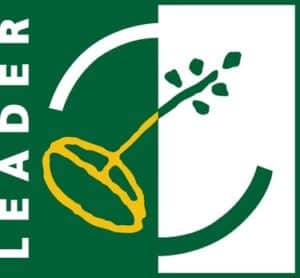Leader

Transitional LEADER Programme 2021 – 2023
The programme commenced on 1st April 2021 and the aim is to allow locally-led rural development projects to continue to be delivered using the current LEADER model until the new EU programme commences in 2023. The Transitional Programme will work closely with communities, and particularly those who have not previously benefited from LEADER funding, to build their capacity in preparation for the next programming period.
Projects ideally should support communities in a post-COVID-19 / post Brexit environment which:
- Support job creation, entrepreneurship, enterprise development and innovation
- Explore and develop projects for funding in thematic areas which are likely to feature strongly in the next EU-funded programme such as climate agenda, digital transformation
- Utilise the Smart Village approach in local area development
Priorities for the Programme in South Cork & West Cork (SECAD Geographic Area)
- Support for new and innovative projects in the areas of climate change, environmental protection and the green economy
- Maximising the potential of broadband and the digital economy in communities, including through skills development and building awareness and usage of available remote working facilities – eg. facilities / hubs for remote working
Community Based Projects:
Community based projects that seek to address the impact of the COVID-19 pandemic:
- community projects that make facilities more accessible to a range of user groups.
- projects that promote community well-being.
- community-led projects that seek to develop and promote outdoor recreation facilities and improve the accessibility of existing outdoor recreation.
New & Innovative Projects
Support for new and innovative projects in the areas of climate change, environmental protection and the green economy.
Rural Businesses:
Supports to rural businesses seeking to reach new markets, expand, innovate and/or diversify in response to the impact of the COVID-19 pandemic and/or Brexit, with a particular emphasis on providing support to businesses in the food sector
Broadband & the Digital Economy
Maximising the potential of broadband and the digital economy in communities, including through skills development and building awareness and usage of available remote working facilities – eg. facilities / hubs for remote working.
New Applicants
Applicants that have not previously received assistance under LEADER or other rural programmes.
PLEASE NOTE:
- A limited project budget is available. Suggested minimum grant request: €10,000.
- Due to budget constraints, projects relating to tourism accommodation are not included in this current call for applications.
- Project applications that can highlight strategic links with other organisations / bodies are encouraged.
- In ALL cases, full planning permission / proof of planning exemption must be in place.
- In ALL cases, the appropriate procurement process must be undertaken prior to application.
LEADER South Cork & LEADER West Cork Areas
SECAD Partnership is an Implementing Partner of the LEADER programme in parts of South Cork and West Cork on behalf of the South Cork LCDC (Local Community Development Committee) and the West Cork LCDC (Local Community Development Committee).
Further details on LEADER in South Cork and LEADER in West Cork, including calls for projects, can be found on the following dedicated websites:
Contact Details
If you are located in the SECAD area and would like further information on how to apply for support through LEADER or to discuss a project idea, contact SECAD at 021 461 3432 or info@secad.ie
LEADER Rural Development Programme 2014 – 2020

LEADER uses a ‘bottom-up’ or community-led local development approach to rural development. The programme aims to bring about positive change in rural areas through funding, training and animation for communities, enterprise and individuals and support rural development projects to:
- Revitalise rural areas
- Promote social inclusion
- Encourage enterprise and job creation.
Individuals, businesses, social enterprises and community groups are eligible to apply for LEADER funding. Specifically, the Rural Development Programme is split into thematic areas identified as most in need of support and with the greatest potential to promote sustainable development for rural communities.
LEADER Themes
Economic, Enterprise Development and Job Creation:
- Rural Tourism
- Enterprise Development
- Rural Towns
- Broadband
Social Inclusion:
- Basic Services targets at Hard to Reach Communities
- Rural Youth
Rural Environment:
- Protection and Sustainable use of Water Resources
- Protection and Improvement of Local Biodiversity
- Development of Renewable Energy
“SECAD Partnership uses a ‘bottom-up’ or community-led local development approach to bring about positive change in rural areas through training and upskilling in communities and in supporting individuals, businesses and communities to access the required funds for their business/development projects.”
Ryan Howard
CEO, SECAD Partnership
This measure/scheme is supported by EU Recovery Instrument Funding under the Rural Development Programme 2014-2022 and funded by the Department of Rural & Community Development.
